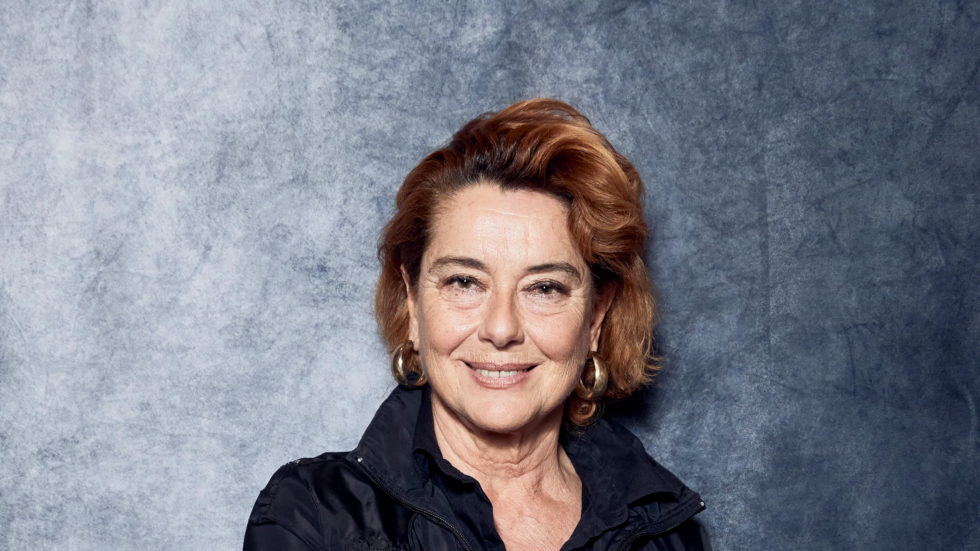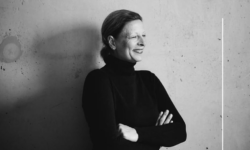
Introduction
In a world of fleeting fame and disposable talent, Monica Guerritore stands as a pillar of artistic integrity, passion, and timeless relevance. An iconic figure in Italian theater and cinema, Guerritore’s presence—both on stage and screen—is characterized by emotional intensity, intellectual depth, and fearless authenticity. With a career spanning over four decades, she has emerged as a symbol of classical discipline blended with modern-day courage, continuing to enchant and provoke audiences well into the 21st century.
Early Life and Career Beginnings
Monica Guerritore was born on January 5, 1958, in Rome, Italy. From an early age, her artistic inclinations were apparent. She made her theatrical debut as a teenager in Giorgio Strehler’s Antigone at the legendary Piccolo Teatro in Milan. This was no ordinary debut—Strehler’s mentorship exposed Guerritore to the deep roots of European dramaturgy, instilling a reverence for theatrical tradition that would permeate her entire career.
Her early exposure to classics such as Elektra, Medea, and Giovanna D’Arco laid the groundwork for a life dedicated to the exploration of intense, often tragic female roles. Guerritore quickly established herself as a formidable talent—an actress who didn’t merely perform, but inhabited her roles with emotional and psychological realism.
Theatrical Excellence: A Signature Style
Monica Guerritore is best known for her extensive work in theater, where she has not only acted but also directed and written adaptations. Her performances often delve into the soul of powerful female characters torn between societal expectations and inner turmoil. Her portrayals of iconic figures such as Lady Macbeth, Medea, and Joan of Arc are lauded for their haunting realism and emotional gravitas.
Guerritore’s approach to theater is fiercely immersive. She believes in merging personal experience with literary narrative, often stating in interviews that the stage is a mirror for both the actor and the audience. Her collaboration with directors like Gabriele Lavia (her former husband) produced some of the most memorable stage productions in Italy during the 1980s and 1990s.
Cinema and Television
While Guerritore’s first love has always been the stage, her contribution to Italian cinema and television is equally impressive. She gained international recognition through films like Fotografando Patrizia (1984) and Scandalosa Gilda (1985), both of which pushed the boundaries of eroticism and psychological complexity in Italian cinema.
In television, Guerritore brought depth and seriousness to historical dramas and biopics, portraying complex women with strength and dignity. Her adaptability as an actress allowed her to transition seamlessly between mediums without compromising the depth of her performances.
A Voice for Women and Social Justice
Beyond the limelight, Guerritore has become a passionate advocate for women’s rights and freedom of expression. She frequently speaks out against gender stereotypes, ageism in the entertainment industry, and violence against women. In a country where traditional roles are often slow to evolve, Guerritore uses her platform to provoke thought and inspire change.
In 2018, she was appointed as a member of the Italian Commission for Culture, where she championed reforms aimed at improving funding and visibility for the arts. Through her activism, she positions herself not just as an artist but also as a cultural leader.
Digital Presence and Continued Relevance
In an era dominated by digital transformation, Guerritore has managed to stay relevant without compromising her principles. Her Instagram account (@monicaguerritore), with over 90,000 followers, is a vibrant mix of professional updates, theatrical projects, inspirational quotes, and behind-the-scenes glimpses into her life.
She engages with a younger generation of theatergoers and artists, often responding directly to fans, encouraging dialogue, and promoting lesser-known works. Far from being a relic of the past, Guerritore exemplifies how classical artistry can thrive in a contemporary setting.
Recent Work and Future Projects
In recent years, Guerritore has continued to write and direct stage productions that reinterpret classic texts with a modern feminist lens. Her adaptation of Giovanna D’Arco was widely praised for turning the historical narrative into a commentary on resilience and female agency.
She is currently working on a new theater production in collaboration with KaraScio Consulenze Artistiche, focusing on themes of human rights and memory. The production, slated for a national tour, is anticipated to blend poetic language with multimedia performance—a testament to her ever-evolving creative vision.
Legacy and Influence
Monica Guerritore’s contribution to Italian arts is immeasurable. She is a trailblazer, a rule-breaker, and a custodian of cultural memory. Her legacy is not merely defined by the roles she has played but by the conversations she has sparked—about identity, power, and the role of women in society.
Younger actresses often cite her as a mentor and source of inspiration, not only for her technique but for her courage. Guerritore has never shied away from complexity, whether in art or in life. Her career reminds us that the purpose of art is not just to entertain but to challenge, reflect, and ultimately transform.
Conclusion
Monica Guerritore is far more than a celebrated actress—she is a force of nature. With an unwavering commitment to truth, beauty, and justice, she continues to shape Italian culture from the heart of its theatrical tradition. As she moves into new chapters of her career, Guerritore remains a luminous example of what it means to live a life in service of art.





